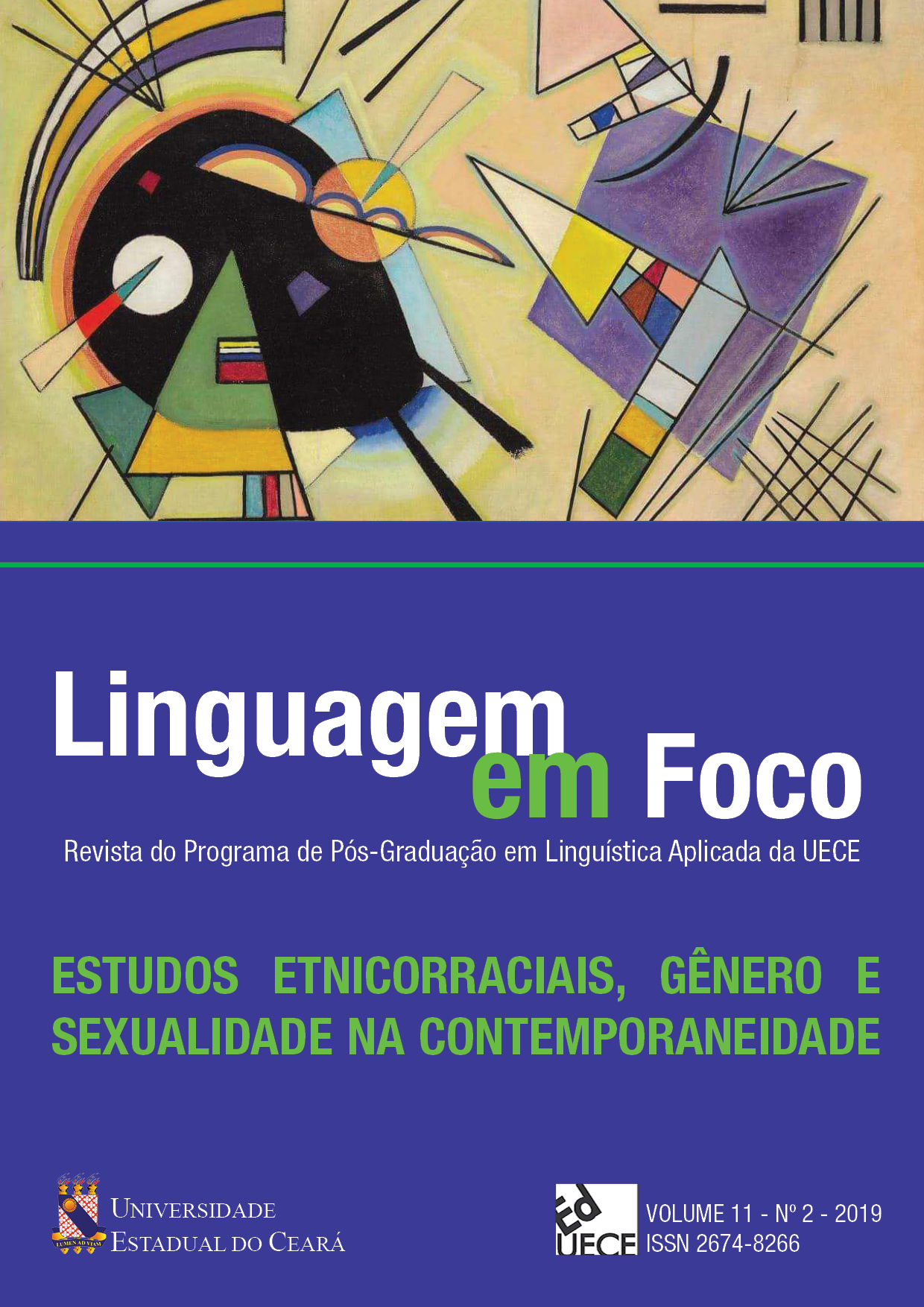“There Should not be so much Concern if the Project is Innocuous”
Textual Trajectories and Indexicality in the Discourses of the Childhood Without Pornography Law Project
DOI:
https://doi.org/10.46230/2674-8266-11-2920Keywords:
Textual trajectories, indexicality, gender and sexualityAbstract
I situate this study in the context of the approval of a bill entitled "Childhood without pornography" submitted to the city council of Juiz de Fora - MG, which was proposed with the effect of judicializing the teachers of the city that discussed topics such as gender and sexuality under the nickname "pornography". Once the law was proposed, this text was the subject of discussion in several sessions in the city hall between January 2017 and April 2018. Different discourses of these events were entextualized (BAUMAN and BRIGGS, 1990) in different journalistic media. In this article, I put under scrutiny the base text of the law, as well as news published in the local newspaper, in an analysis based on the concepts of textual trajectories, entextualizations and indexicality (BAUMAN and BRIGGS, 1990; BLOMMAERT, 2005). In analyzing such material, I observe how discourses (GEE, 2005) on gender and sexuality are indexicalized. In addition to disputing the meaning of what “pornographic” is, such news indicates that its supporters do not consider the perlocutionary effects (AUSTIN, 1990) of the statements of the law regarding the work of local public school teachers. Besides the discourses are constituted by different linguistic resources that launch the theme as a matter exclusively of political partisanship, and not of public interest. In the end, I propose a reflection on education and the role played by the referred municipal law in the advances of conservatism.
Downloads
References
BAUMAN, R.; BRIGGS, C. Poética e performance como perspectivas críticas sobre a linguagem e a vida social. In: Ilha – Revista de Antropologia, v.8, n.1/2, p.185-229 [1990] 2006.
BENTO, B. Transviad@s: gênero, sexualidade e direitos humanos. Salvador: EDUFBA, 2017.
BLOMMAERT, J. Contexto é/como crítica. In: SIGNORINI, I. (org.). Situar a Lingua[gem]. São Paulo: Parábola, 2008. p.93-115.
BLOMMAERT, J. Discourse: a critical introduction. Cambridge: Cambridge University Press, 2005.
BRITZMAN, D. Curiosidade, sexualidade e currículo. In: LOURO, G.L. (org.). O corpo educado: pedagogias da sexualidade. Belo Horizonte: Autêntica, 2013.p.83-112.
BULGARELLI, L. Moralidades, direita e direitos LGBTI nos anos 2010. In: GALLEGO, Esther Solano (org.). O ódio como política: a reinvenção das direitas no Brasil. São Paulo: Boitempo, 2018. p.97-102.
CADILHE, A. J. Letramento, gênero e sexualidade na escola: reflexões para uma transversalidade curricular. In: REIS, Andreia Garcia; MAGALHÃES, Tania. (Org.). Letramentos e Práticas de Ensino. 1ed.Campinas: Pontes, v. 1, p. 167-182, 2016.
CADILHE, A. J. 'Tenho dificuldades em lidar com essa situação': narrativas, gênero e sexualidade na formação continuada de professores/as. Humanidades & Inovação, v. 4, p. 46-54, 2017.
CARA, D. Contra a barbárie, o direito à educação. In: CÁSSIO, Fernando (org.). Educação contra a Barbárie. São Paulo: Boitempo, 2019. p. 25-32.
FABRICIO, B. Transcontextos educacionais: gêneros e sexualidades em trajetórias de socialização na escola. In: SILVA, Daniel; FERREIRA, Dina; ALENCAR, Claudiana. Nova Pragmática: modos de fazer. São Paulo: Cortez, 2014. p. 145-189.
GEE, J. P. An Introduction to Discourse Analysis: theory and method. New York: Routledge, 2005.
JUNQUEIRA, R. D.. Pedagogia do armário: a normativdade em ação. Revista Retratos da Escola, Brasília, v. 7, n. 13, p. 481-498, 2013.
JUNQUEIRA, R. D. A invenção da 'ideologia de gênero': a emergência de um cenário político-discursivo e a elaboração de uma retórica reacionária antigênero. Revista de Psicologia Política, v. 18, p. 449-502, 2018.
JUNQUEIRA, R. D. A “ideologia de gênero” existe, mas não é aquilo que você pensa que é. In: CÁSSIO, Fernando (org.). Educação contra a Barbárie. São Paulo: Boitempo, 2019. p. 135-140.
MISKOLCI, R. Pânicos morais e controle social: reflexões sobre o casamento gay. Cad. Pagu, n.28, p.101-128, 2007.
MISKOLCI, R. Teoria Queer: um aprendizado pelas diferenças. Belo Horizonte: Autêntica, 2013.
MOITA LOPES, L. P.; FABRICIO, B. F. Desestabilizações queer na sala de aula: “táticas de guerrilha” e a compreensão da natureza performativa dos gêneros e das sexualidades. In: PINTO, J.; FABRICIO, B. (org.). Exclusão social e microrresistências: a centralidade das práticas discursivo-identitárias. Goiânia: Cânone Editorial, 2013. p.283-301
PENNA, F. O discurso reacionário de defesa de uma “escola sem partido”. In: GALLEGO, Esther Solano (org.). O ódio como política: a reinvenção das direitas no Brasil. São Paulo: Boitempo, 2018. p.109-114.
VEIGA-NETO, A. Por que governar a infância? In: RESENDE, Aroldo (org.). Michel Foucault: o governo da infância. Belo Horizonte: Autêntica, 2015. p. 49-56.
Downloads
Published
How to Cite
Issue
Section
License
Copyright (c) 2020 Alexandre José Cadilhe

This work is licensed under a Creative Commons Attribution 4.0 International License.
Authors who publish in Linguagem em Foco Scientific Journal agree to the following terms:
- Authors retain the copyright and grant the journal the right of first publication. The articles are simultaneously licensed under the Creative Commons Attribution License which allows sharing the work with an acknowledgement of its authorship and initial publication in this journal.
- The concepts issued in signed articles are the absolute and exclusive responsibility of their authors. Therefore, we request a Statement of Copyright, which must be submitted with the manuscript as a Supplementary Document.
- Authors are authorized to make the version of the text published in Linguagem em Foco Scientific Journal available in institutional repositories or other academic work distribution platforms (ex. ResearchGate, Academia.edu).





























